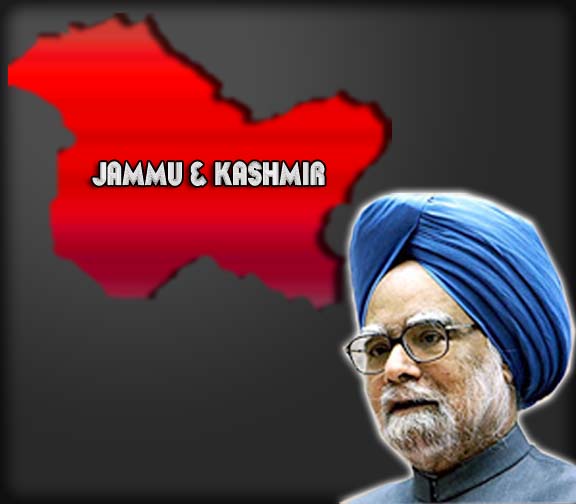PM visiting Kashmir in best of times
 Manmohan Singh's visit on Wednesday is anticipated to be a watershed in itself as never before any Prime Minister has called on Kashmir in the backdrop of heightening optimism about the dialogue and resolution of Kashmir crisis.
Manmohan Singh's visit on Wednesday is anticipated to be a watershed in itself as never before any Prime Minister has called on Kashmir in the backdrop of heightening optimism about the dialogue and resolution of Kashmir crisis.
He is expected to spell out nation's contours integrating aspirations of the people of the Valley - both living within and outside of it and who have suffered the ill-effects of violence of all sorts - by offering a negotiating table to the whole range of players having stakes in peace and prosperity of the state.
Amitabh Mattoo, an expert of international affairs, especially South Asia, said that this is "going to be a very important visit" and "Prime Minister is expected to unfold his vision of New Kashmir."
"Even when he was the leader of an untidy coalition, Jammu and Kashmir was principal focus of his policy and ensuring peace in J&K and reconciliation with were hallmarks of his policy and vision," Amitabh observed. Now it is his first visit after the elections, he would walk several extra milers in doing so.
It is best of the times in the past 20 years, when the separatist leaders and erstwhile militants have realised the virtue of family and settled lives, anti-India rhetoric notwithstanding. Barring Syed Ali Shah Geelani, others are in a mode to welcome PM and hope that things would move forward.
"Indeed, we have expectations from Prime Minister. We expect that he would further consolidate on the process laid out by Home Minister P Chidambaram," All Parties Hurriyat Conference Chairman Mirwaiz Umar Farooq told Hindustan Times over phone before leaving for London on October 22.
The choice of Qazigund-gateway of the Valley, about 80 km of south of Srinagar, to deliver this message is significant. It was here, in July 1997, Manmohan Singh's one of the predecessors Inder Kumar Gujaral, had offered unconditional dialogue to militants.
But those timings were different. The violence was at its peak. A new ethnic group had joined militancy - residents of twin border districts of Armour and Poonch had got lured to the arms training across the border, and their cousins from across the Line of Control (LoC) had infiltrated to this side, exploiting " uncle and aunt" appeal to entrench themselves in the north and south of Pir Panchal.
Manmohan's own efforts to resolve the issue through internal and external dimensions in 2006 through a series of round table conferences on Kashmir, attracted only the mainstream parties, but failed to stem the violence or the human rights violations.
And the five working groups constituted by him - four of which submitted reports and whose recommendations were accepted in April 2007 - too, did not achieve the goals.
Political experts have their own reasons to say that the PM has best of times to talk and seize a "golden opportunity."
Professor Gul Mohammad Wani of the political science of Kashmir University has four reasons. "First, without sounding opportunistic, Kashmiris are psychologically insulated from the long-held perception that has to be brought on board for a successful dialogue to resolve Kashmir issue, essentially what's happening in itself."
Secondly, Kashmiris also are having a realistic assessment, according to Wani, that the Indo-Pak track can wait because of the Pakistani situation.
"And major mainstream parties and moderate wing of the Hurriyat Conference are having a broader convergence of views, if not consensus on the dialogue and solution," Wani counted this as a third reason.
He concluded that the atmosphere is "propitious." The violence is down and the people outside the Valley, too, view it as peaceful. "If this opportunity is seized, it would meet the expectations of the people, which are very high."
"If pessimism is allowed to replace optimism," he said, then the credibility of the dialogue forces is at risk.